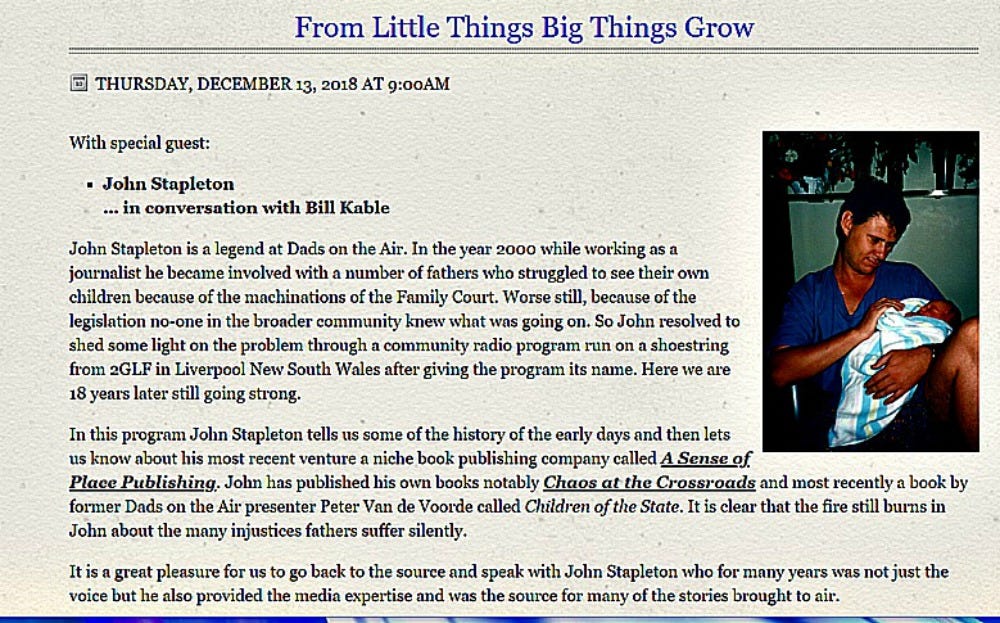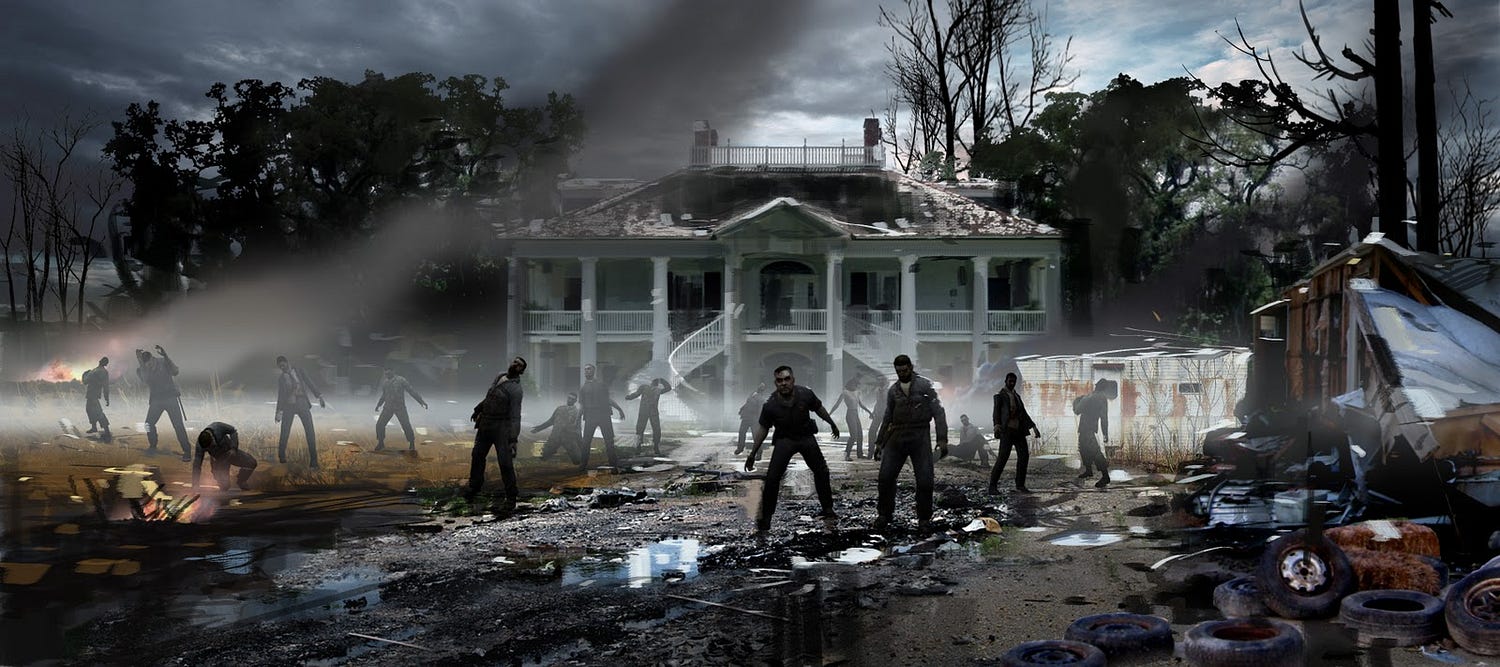Dads On The Air was strategically placed to cover the push for family law reform in Australia.
DOTA, as the show was often referred to as, was born not just out of a sense of outrage, but frustration with the mainstream media’s failure to take men’s issues seriously.
The history of Dads On The Air coincided closely with the evolution of Australian groups including Dads In Distress, the Non-Custodial Parents, Party, the Shared Parenting Council of Australia, the Men’s Rights Agency, the Lone Fathers’ Association, Dads Against Discrimination, Men’s Confraternity, the Fatherhood Foundation and Fathers4Equality.
Many of these activists embraced Dads On The Air.
We were proud to provide a conduit for groups otherwise little heard.
There were also many volunteers who helped along the way. They are more fulsomely thanked elsewhere. Standouts included former policeman and co-founder Rick Torning, Dads In Distress Counselor Phil York, musician Ian Purdie and “rockin’ pop”, as we used to call him, Peter van de Voorde
The early days of the show also coincided with a push by the Australian government to reform family law. An initially popular move, it finally died in a quagmire of bureaucratic obfuscation and striking political dishonesty.
Fast forward to the present and there are entire new generations of embittered fathers and renewed calls for a Royal Commission into the blatant malfeasance operating through the entire system.
But for a period many of the country’s leading politicians, including the Attorney-General, queued to come on the show; most wanting to demonstrate their support for shared parenting and for fathers.
Despite architect Lionel Murphy’s vision of a “helping” court when he brought no-fault divorce to Australia in 1975, co-operative parenting after divorce was almost never encouraged.
The phrase, “the best interests of children”, was used to cover a multiple of sins.
Almost from the minute the Family Court opened its doors it became a law unto itself, imposing sole mother custody on separating families despite the harm it caused.
There has never been any evidence that the adversarial system and the style of custody orders it embraced was indeed in “the best interests of the child”.
Reforms meant to promote shared parenting in 1995 actually saw the small percentage of such orders drop. Historically, the Family Court denied fathers contact with their children on the flimsiest of excuses or most ludicrous of accusations.
Overly legalistic, enormously bureaucratic, secretive, unaccountable and ideologically extremist, defying community norms of morality and propriety, it soon became one of the country’s most hated institutions.
Dads On The Air followed the antecedents of the Australian government’s 2003 parliamentary inquiry into family law and the story of what has happened since.
It may seem small beer for international readers, a long time ago in a country far far away, but the ramifications have been felt in hundreds of thousands of lives, and in a broader sense continues to be a major factor in the deep disillusion and estrangement the public feels towards their government.
Here. And in your own country as well.
It is also a cautionary tale on how bureaucratic inertia and ideology can thwart genuine grass roots campaigns for change.
Despite the deliberate blizzard of women’s and domestic violence groups stacking the inquiry, the public hearings around the nation exposed for anyone who cared to look the massive dysfunction of Australia’s family law and child support systems and the distress they created in the community.
The inquiry also exposed the divide between the taxpayer-funded mandarins and the general populace. The industry continued to blindly insist their only concern was the best interests of the child. It was a lie.
The 2003 inquiry was given added piquancy by virtue of being held during the final days of that aging lion of the left Chief Justice Alastair Nicholson. He had dominated family law in Australia for more than half of the Court’s life and took every opportunity he could to attack the conservative government of John Howard for its investigation of shared parenting.
The original announcement from then Prime Minister John Howard that the government would examine the idea of a rebuttable presumption of joint custody provoked a wave of positive media coverage and community support. His standing in the polls went up.
However the parliamentary inquiry’s final report, the poorly written, intellectually sloppy and ridiculously named Every Picture Tells A Story, caused many problems. It was condemned by family law reformers as a betrayal of the nation’s more than one million children of separated parents and of the often tearful parents who had appeared before the inquiry.
Millions of dollars of public funds were squandered for no outcome.
On air we described the report as just like a Family Court judgement: it bore no relationship to the evidence and no relationship to reality.





